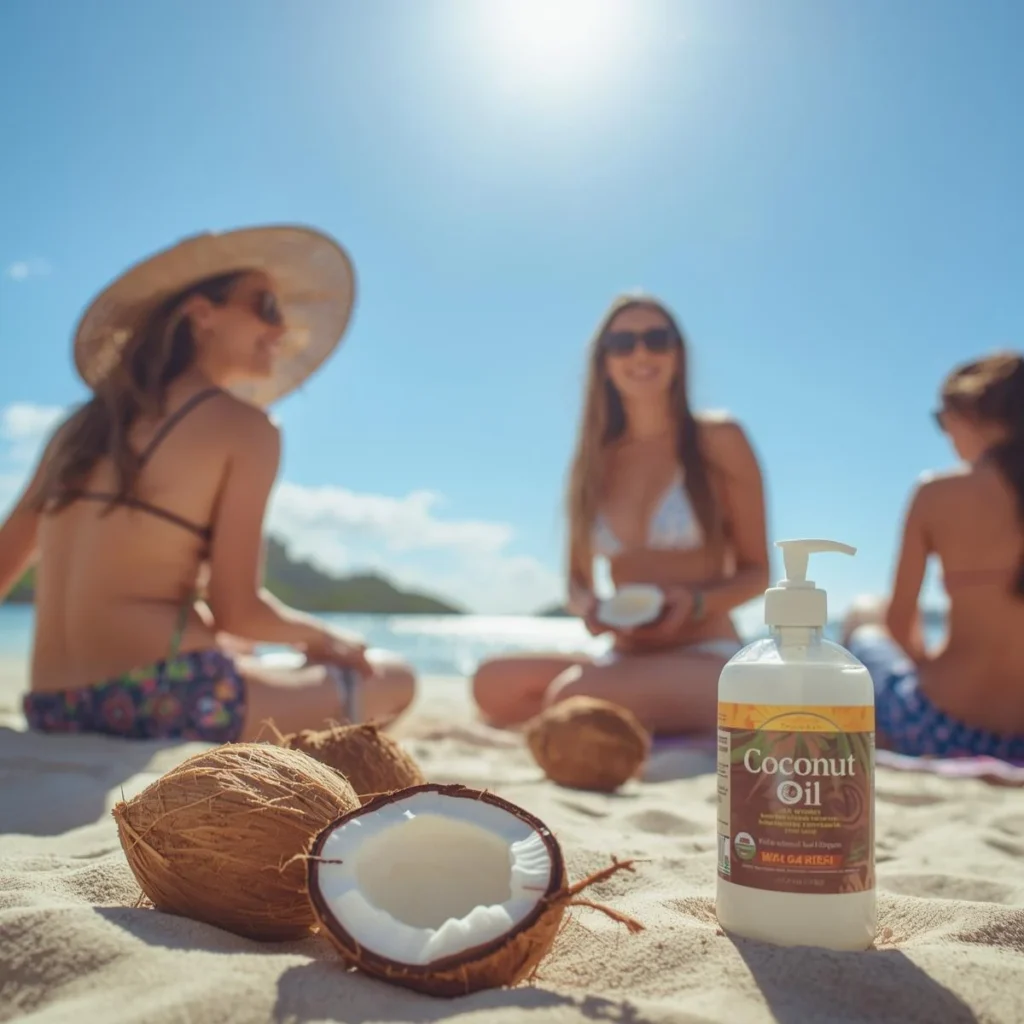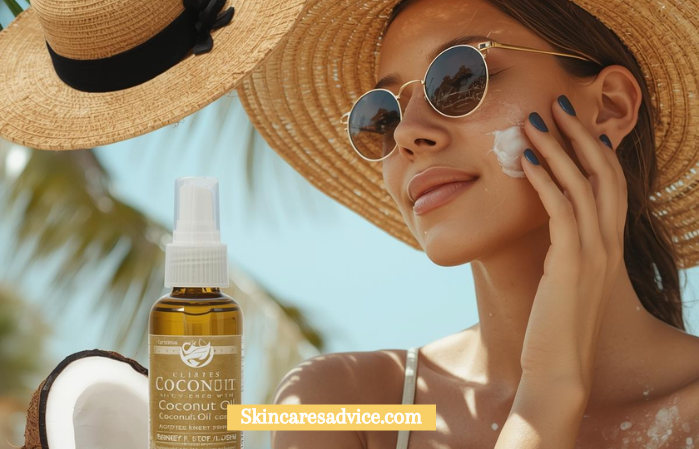Coconut oil is widely loved for its rich texture, natural shine, and deep moisturizing ability. Because of these benefits, many people wonder if Coconut Oil as Sunscre could be a safe and natural choice. While coconut oil has many skin advantages, its sun protection power is often misunderstood.
INTRODUCTION:
Coconut oil is one of the most loved natural ingredients for skincare. From deep hydration to a soft, glowing finish, it offers multiple skin benefits. Because of this popularity, some people believe Coconut Oil as Sunscre can work as natural sun protection. But is this really true? Here’s a clear and easy guide.
Why People Use Coconut Oil in the Sun

For years, coconut oil has been used in tropical regions as part of everyday skincare. Its smooth feel and hydrating qualities make the skin appear radiant. This leads some to believe that Coconut Oil as Sunscre is a good alternative to commercial SPF products. But hydration and sun protection are not the same.
How Much SPF Does Coconut Oil Really Have?
Coconut oil does provide a small amount of natural SPF, usually around SPF 4–7. This level is too low to protect the skin from strong UV rays. Even though some people prefer natural remedies, choosing Coconut Oil as Sunscreen alone can leave your skin exposed to sunburn and damage.
What Studies Say About Coconut Oil and UV Rays
Research has shown that coconut oil cannot block enough UVA and UVB rays. It works wonderfully as a moisturizer, but not as a sun shield. Relying on Coconut Oil as Sunscreen may lead to tanning, dryness, sunburn, and early skin ageing. For outdoor activities, stronger sun protection is needed.
Why Coconut Oil Is Still Amazing for Skin
Even if it’s not a sunscreen, coconut oil has many benefits:
- Deep hydration
- Soothes dryness and irritation
- Supports natural skin repair
- Works well as an after-sun moisturizer
- Adds a soft, glowing finish
You can use coconut oil anytime for nourishment — just not as your only sun protection.
Safe Ways to Use Coconut Oil
You can safely use coconut oil:
- As a moisturizer before or after going out
- After sun exposure, to calm dryness
- On indoor or low-sunlight days
- As a natural skin softener
Just be sure to pair it with proper SPF for full sun safety.
Better Natural Alternatives To COCONUT Oil for Sun Protection
If you want natural yet effective sun protection, try:
- Mineral sunscreens with zinc oxide or titanium dioxide
- Aloe-based SPF lotions
- Shea butter–based SPF products
- Plant-based certified sunscreens
These options actually block harmful UV rays.
Conclusion
Coconut oil is amazing for softness, glow, and hydration, but it is not a reliable sunscreen. While you can enjoy coconut oil daily, always use proper SPF when spending time in the sun. Coconut oil should be a part of your skincare routine — but not your only sun protection.
FAQ: Coconut Oil as Sunscreen
Q1. Can coconut oil protect your skin from the sun?
Coconut oil offers very low SPF, usually between 4 and 7. This is not enough to protect your skin from strong UV rays, so it should not be used as a sunscreen.
Q2. Why do some people think coconut oil works as sunscreen?
Because it feels thick and moisturizing, many assume it blocks sunlight. However, moisture and sun protection are two different things.
Q3. Is coconut oil safe to use on the skin?
Yes. Coconut oil is safe for most people and is excellent for hydration and soothing dry skin. It’s great for skincare, but not as a sun blocker.
Q4. Can I apply coconut oil before going outside?
You can apply it for moisture, but you should still use proper SPF if you are going to be in direct sunlight.



